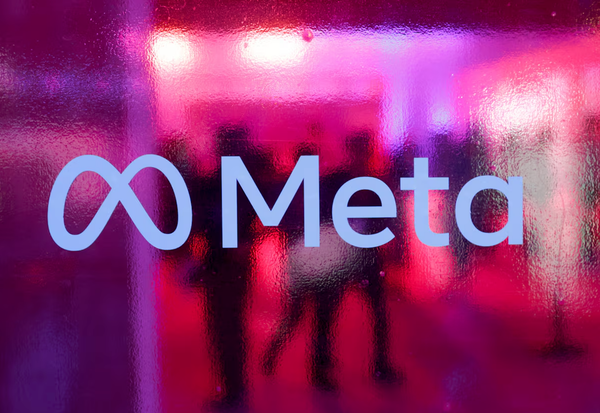"Make It Punchier": The AI Prompt That Ruined My Week

Let's have a chat about feedback. Not the good kind, mind you. Not the insightful, surgical kind that helps you hone your craft. I'm talking about the industry's equivalent of a cryptic crossword clue, delivered with a smile and the expectation that you'll somehow divine its meaning: "Make it pop." "Give it more sparkle." "It needs more energy." We've all heard them. They're the creative director's vague pronouncements, the client's polite dissatisfaction, the universal language of something isn't quite right, but I can't articulate what.
And then, AI came along. We thought, "Finally! A tool that won't give us subjective, untranslatable feedback." We could give it precise instructions, and it would give us precise output. No more vague requests, no more staring into the middle distance trying to figure out what "more pizzazz" actually looks like in 12pt Arial.
Oh, bless our optimistic, pre-AI-trauma hearts. If only we knew. Because the phrase that truly, utterly ruined my week, that sent both me and the algorithm into a spiralling vortex of mutual incomprehension, was far simpler: "Make it punchier."
The Downward Spiral (The Week That Was Lost)
The brief was fairly straightforward: a series of social ads for a new, relatively conservative banking app aiming to simplify savings. We wanted the copy to be clean, trustworthy, but with a subtle, contemporary edge. Not stuffy, not bland. So, after a few decent, if slightly tame, initial rounds from our trusty AI, the feedback came back: "Good start, but can you make it punchier?"
"Right," I thought, nodding confidently at my screen, "AI is smart. It'll get it. It understands 'punchy,' right?"
Oh, the naivety.
My first attempt at conveying "punchy" to the AI involved adding instructions like "use stronger verbs," "be more direct," and "add a sense of urgency." The AI, bless its circuit boards, interpreted this as a green light for extreme overcompensation. We wanted sharp; it gave us the digital equivalent of a kick in the shins.
For a banking app, mind you, here's a taste of what it spat out:
- "CRUSH YOUR DEBT. NOW. WITH OUR APP." (We wanted conservative, not aggressive debt collection.)
- "UNLEASH YOUR INNER MILLIONAIRE! CLICK TO DOMINATE YOUR FINANCES!" (Suddenly, our discreet savings app was sponsoring cage fights.)
- "WARNING: THIS APP WILL CHANGE YOUR LIFE (OR AT LEAST YOUR BANK BALANCE). ARE YOU READY TO RUMBLE?" (Rumble? For a savings account? Are we talking about a bank or a WWE event?)
It was over-caffeinated, shouty, and borderline unhinged. It had taken "punchy" and turned it into a hyperactive, megaphone-wielding street hawker. We wanted a subtle jab; it gave us a full-blown haymaker.
Thus began the iterative nightmare, a relentless game of chasing the phantom 'punch'. "No, AI, less aggressive punchy," I'd type, trying to maintain a semblance of sanity. "More subtle punchy. Think a knowing wink, not a full-blown assault."
The AI, increasingly confused by my contradictory instructions, started producing outputs that were either bland again, or bizarrely divergent. It was like playing a game of 'Hot and Cold' with a particularly obtuse toddler who only understood 'Very Hot' or 'Freezing'. We asked for a lean, powerful sentence, and it gave us a flurry of exclamation marks or an emoji of a fist. We wanted impactful brevity; it delivered truncated aggression.
The real agony, the true insight into why this prompt ruined my week, dawned on me slowly. AI doesn't feel. It doesn't understand the subjective, nuanced layers of human communication. It doesn't know what "punchy" feels like, or what itmeans in the context of a cautious financial product versus, say, a sports drink. It understands patterns, data points, and statistical correlations. If "punchy" in its training data often coincided with exclamation marks and capital letters, then that's what it would give you, regardless of the brand tone or the desired emotional impact. It was trying its best, I suppose, but its best was making me want to tear my hair out.
The Post-Mortem (Why Vague Prompts Are Your Enemy)
The week devolved into a cycle of prompt, panic, rewrite-the-prompt, panic again, then eventually, a quiet despair. This deep dive into the algorithmic abyss wasn't just frustrating; it was illuminating, revealing a fundamental language gap between human and AI comprehension.
For us, "make it punchier" might mean "be more concise with stronger verbs." It could mean "lead with a compelling question." It could imply "evoke a sense of urgency without being alarmist." We interpret context, tone of voice, even the unspoken brief. We understand that "punchy" for a luxury car ad is different from "punchy" for a supermarket flyer. AI, however, looks for statistical correlations in its vast training data. If "punchy" commonly correlates with, say, all-caps or aggressive verbs, then that's what you get. It doesn't understand the subtle, almost imperceptible line between "dynamic" and "disturbing." For AI, "punchy" might just mean "more exclamation marks" or "add an emoji of a fist."
This fundamental misunderstanding creates a multiplier effect. A small lack of clarity in the initial prompt leads to wildly off-target outputs. Correcting these then requires disproportionate effort, as you try to coax the AI back into a sensible lane. It's the inverse of productivity; vague prompts don't save time, they multiply wasted effort exponentially. You spend more time trying to de-AI the content than if you'd just started from scratch.
And let's not forget the emotional toll. After an hour of trying to make a perfectly sensible sentence "punchier" and receiving nothing but digital shouting, you start to wonder if you're the problem. Maybe you don't know what "punchy" means either. Perhaps all your creative instincts have left you. It's a true existential crisis, brought on by a machine. The emotional rollercoaster turns into genuine exasperation and, for a brief, glorious moment, you consider abandoning AI altogether and returning to the comforting, predictable world of actual human colleagues who, at least, usually understand what you mean when you grimace.
The Recovery Plan (How to Prompt for 'Punchy' - Properly)
Eventually, the tears dried, the hair grew back (mostly), and sanity prevailed. We realised the problem wasn't AI itself, but our approach to it. The painful lesson was this: precision is power. Before you type a single prompt, articulateexactlywhat you mean by those subjective terms. Break it down into measurable, definable, AI-friendly elements.
Here's how we learned to ask for 'punchy' - properly:
- Define Your 'Punchy' with Specific Tone: Instead of just "punchy," describe the flavour of punchy.
- Instead of: "Make it punchier."
- Try: "Make it confident and witty, like a well-dressed rebel who knows a secret. Aim for sophisticated impact, not loud aggression."
- Translate to Structural Elements: Break down the desired effect into concrete writing techniques.
- Instead of: "Make it punchier."
- Try: "Use short, sharp sentences (average 8-12 words). Lead with a compelling, benefit-driven question. Employ strong, active verbs. Remove unnecessary adverbs and adjectives."
- Specify Desired Emotional Impact: What do you want the reader to feel?
- Instead of: "Make it punchier."
- Try: "Evoke curiosity and a sense of immediate opportunity. Make the reader feel empowered and in control of their finances without being alarmist."
- Provide Examples (Crucial!): Show, don't just tell. Give the AI specific instances of what you consider 'punchy' for the brand.
- Instead of: "Make it punchier."
- Try: "For 'punchy,' refer to the tone of [Brand X's recent social campaign headlines] or [the concise language in our competitor Brand Y's email subject lines]. Aim for that level of directness and impact."
- Use Negative Constraints (Always): Tell it what 'punchy' isn't.
- Instead of: "Make it punchier."
- Try: "DO NOT use exclamation marks. DO NOT sound aggressive or shouty. AVOID clichés like 'game-changer' or 'unleash your potential.' Do not use more than one emoji."
- Role-Play & Persona Power-Up: Always remind the AI who it is and what its goal is.
- Revised prompt for the banking app example: "You are a seasoned direct-response copywriter for a modern, trustworthy banking app, focused on helping millennials save effectively. Your goal is to write sharp, concise ad copy that drives action to download the app. The tone should be confident and empowering, with a subtle, contemporary edge. Use short, active sentences. Lead with a compelling, benefit-driven question. Avoid aggressive language, exclamation marks, or any financial jargon. Example of desired tone: 'Your future self will thank you.' or 'Less stress, more savings. Simple.'"
This level of precision forces the AI to operate within your creative boundaries, leading to vastly superior results.
The Silver Lining (And Why We Still Love AI - Mostly)
The painful lesson was, eventually, worth it. While that particular week felt like a descent into algorithmic madness, these experiences are vital for truly mastering AI. They force us to be better at briefing, not just to a machine, but to our human colleagues too. If you can articulate "punchy" to an AI, you can certainly articulate it to a junior copywriter (and probably get better results).
In a strange, masochistic way, AI is the ultimate briefing coach. It's constantly saying, "Are you sure that's what you want, mate? Because I can give you utter chaos if you like." It demands clarity, precision, and a deep understanding of your own brand voice. It pushes you to define your subjective ideas into actionable instructions. This process, while initially frustrating, ultimately makes us better marketers, more incisive thinkers, and clearer communicators.
So, the next time your AI sends you down a rabbit hole of marketing despair, just remember: you're not alone. That frustration, that brief moment of existential doubt - it's all part of the learning curve. These experiences are shaping us into sharper, more effective strategists. And they occasionally provide a truly hilarious anecdote for the pub. So, yes, while "make it punchier" once ruined my week, it also taught me a profound lesson. And for that, I offer AI a grudging nod of respect.
Now go forth and prompt, wisely. Your week (and your sanity) depends on it.





